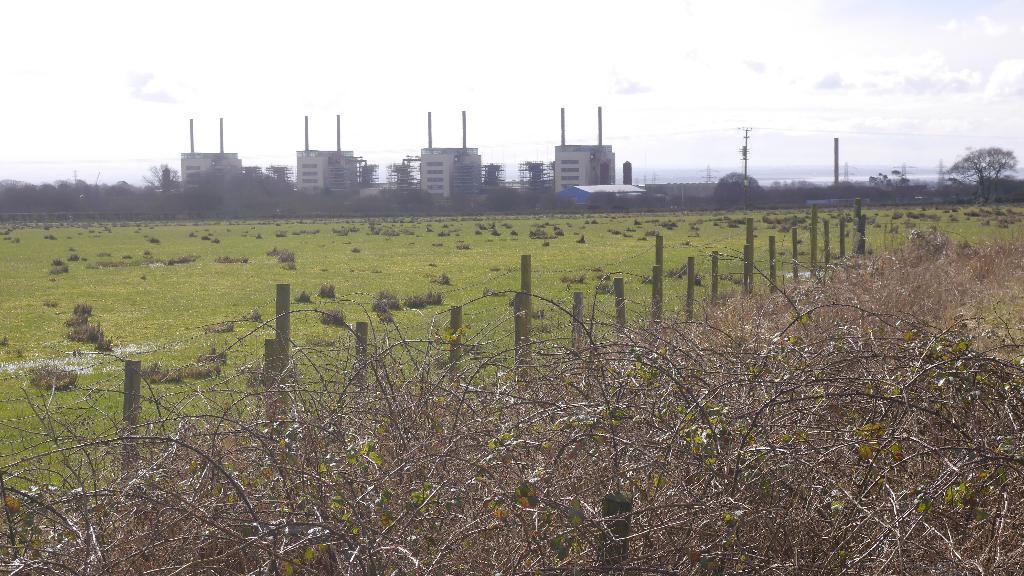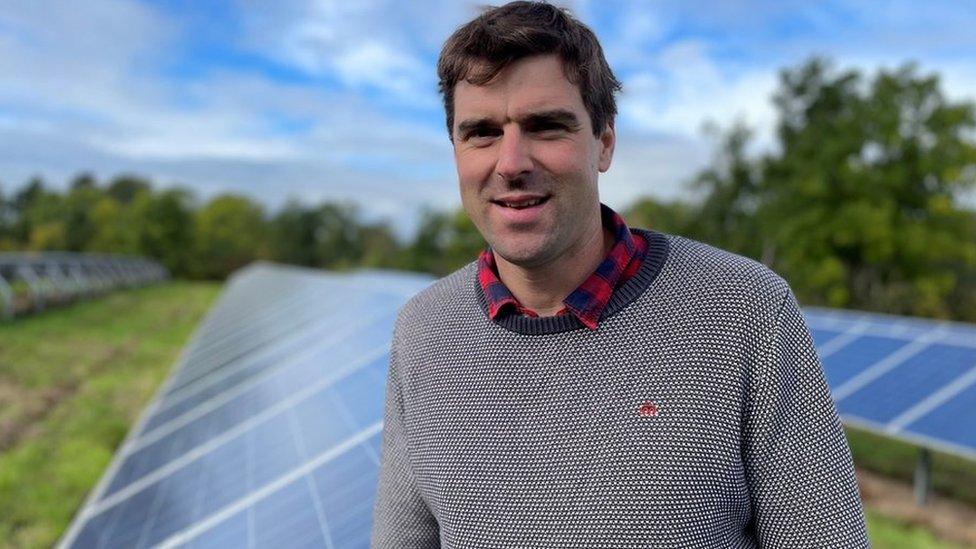Solar farm near former nuclear plant approved

The solar farm will be built on farm land in the south of Scotland
At a glance
A 75,000-panel solar farm near the old Chapelcross nuclear plant in southern Scotland has been approved
It would support about 60 jobs during its construction phase
Developers said it could meet the energy needs of a town the size of Annan for the next 40 years
Planning committee councillors approved the scheme saying they hoped it could be the "first of many" in the region
- Published
Plans for a 75,000-panel solar farm near a former nuclear plant in southern Scotland have been approved.
The scheme at Jockstown Farm close to the old Chapelcross facility near Annan will produce about 38MW of renewable energy.
A report to councillors said it would need about 60 workers during the construction phase.
No objections were received to the proposals and they were approved in line with the recommendation from planning officials.
They concluded that the project had been "carefully designed" to ensure any environmental impact would be kept to a minimum.

Proximity to the former nuclear plant played a key part in selecting the site
They also highlighted the "useful contribution" the scheme would make to achieving renewable energy targets as well as short-term benefits from construction jobs.
Matthew Bayley of developers Green Energy International told planning committee councillors it could meet the electricity needs of a town the size of Annan for the next 40 years.
He said the proximity to the old nuclear site - and its connection to the National Grid - had played a key part in selecting the location.
"It was the substation at Chapelcross that was the magnet for the solar farm itself," he said.
The planning committee agreed to approve the scheme with a number of conditions attached including that the frames of the panels should be black rather than silver.
Councillor Archie Dryburgh said he hoped it would be the "first of many" such developments across the region.
Related topics
- Published12 October 2022
